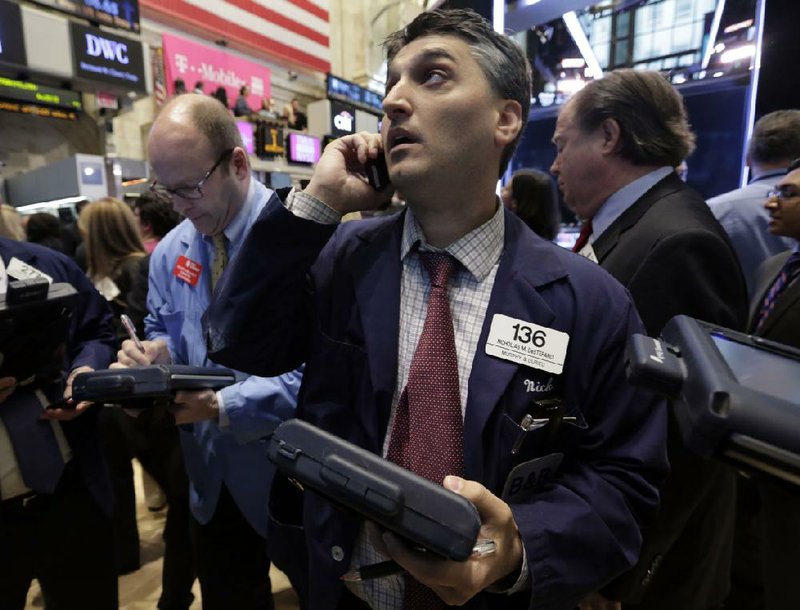NEW YORK - Signs of a slowing economy dragged down the stock market Wednesday. Even the prospect of continued stimulus from the Federal Reserve didn’t help.
Major market indexes fell by 0.9 percent, their worst decline in two weeks. Small-company stocks fell even more, 2.5 percent, as investors shunned risk. The yield on the benchmark U.S. government bond fell to its lowest of the year as investors sought safety.
Stocks opened lower and kept sagging throughout the day, hurt by reports of a slowdown in hiring and manufacturing last month. Discouraging earnings news from major U.S. companies also dragged the market lower.
“Investors are going to be rattled by these numbers,” said Colleen Supran, a principal at San Francisco based-Bingham, Osborn & Scarborough. She expects stock market swings to increase after the early gains of the year.
The Dow Jones industrial average closed down 138.85 points to 14,700.95 points. Merck, the giant drug company, had one of the biggest falls in the Dow after reporting earnings that disappointed investors. The Dow had risen for four days straight.
The Standard & Poor’s 500 index, a broader market measure, dropped 14.87 to 1,582.70.
Two stocks rose for every one that fell on the New York Stock Exchange. Consolidated volume was average at 3.5 billion shares.
The stock market was down even after the Federal Reserve stood by its easy-money policies after a two-day policy meeting.
The Fed is maintaining its $85-billion-a-month bond-buying program, begun in 2008, which aims to keep interest rates low to encourage borrowing, spending and investing.
The Fed also raised concerns about the economy, noting that a federal payroll tax increase and spending cuts that kicked in this year are slowing growth. The central bank made clear that it could increase or decrease its bond purchases depending on the performance of the job market and inflation.
John Lynch, chief regional investment officer at Wells Fargo said: “If you get a market that is purely built on free money, as opposed to solid fundamentals, investors should take pause.”
The Fed’s program has been one of the supporting factors behind the stock market’s rally this year. The S&P 500 reached record highs in April and has risen every month in 2013, gaining 11 percent so far this year.
The market has stumbled in recent weeks after several reports suggesting the economy might be weakening.
Employers added only 88,000 jobs in March, far fewer than the 220,000 averaged in the previous four months, and the economy grew at an annual rate of 2.5 percent in the January-March quarter - a decent rate but one that’s expected to weaken in coming months because of higher Social Security taxes and the federal spending cuts.
On Wednesday, a report showed that U.S. factory activity in April dropped to its slowest pace this year as manufacturers pulled back on hiring and cut stockpiles. Companies added just 119,000 jobs in April, the fewest in seven months, said payroll processor ADP.
About two-thirds of companies in the S&P 500 index have announced earnings for the first quarter.
The earnings are at record levels, and about seven of 10 companies have topped the forecasts of Wall Street analysts, according to S&P Capital IQ. Revenue has disappointed, though, with about six of 10 companies falling short. That suggests companies are raising profits through cutting costs rather than raising revenue.
Business, Pages 24 on 05/02/2013

